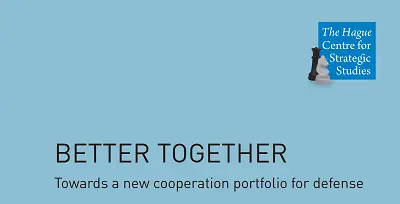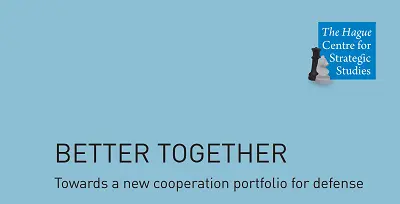A new HCSS report Better Together is about cooperation, the way it is changing, and what this means for our national defense organizations (NDOs). Cooperation is the foundation of any human society. The scale and extent of cooperation is what distinguishes humans from other species.
Watch an introductory video to the study below.
In recent years the digital revolution has drastically reduced the cost of cooperating and simultaneously expanded the opportunities for cooperation. The new cooperation calculus has given rise to much more open, smaller scale, and vibrant forms of collaboration, in many instances rapidly displacing traditional models.
NDOs face a turbulent environment and an uncertain future. In these times of geopolitical shifts and rapid technological change no defense organization can go it alone. The Dutch defense organization already manages a broad portfolio of cooperation partners. Its portfolio consists of other nations’ NDOs, government departments and agencies; NGOs; local communities; defense and non-defense industry firms; knowledge institutes; etc. However, this cooperation portfolio tends to be lopsided toward long-term, formalized, closed forms of collaboration with mostly like-minded organizations. While these traditional kinds of cooperation clearly remain important, this report sets out to explore other forms of cooperation that NDOs have thus far not had much experience with – with unfamiliar partners and in more open and more loosely coupled ways, facilitated by new technological developments.
In order to gain insight into new forms of cooperation and draw lessons for NDOs, HCSS has explored three cases: InnoCentive, an open marketplace for R&D solutions; hacker communities; and Ushahidi, an open platform for crisis informatics. The report describes how these new forms of cooperation are initiated, how they are managed, and what their strengths and weaknesses are.
Based on the results of the case studies, the report makes some general recommendations for the Dutch defense organization. They suggest that our NDO should continue its first steps and move further along the road towards full-spectrum cooperability, that is the capability to engage in a broad portfolio of cooperation partners and forms, to strengthen and draw strength from a diverse defense and security ecosystem.
The report can be downloaded here.
Introductory video:






